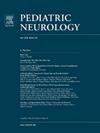睡眠障碍在青春期早期发育中的潜在作用:过去的临床证据为未来的管理提供了依据。
IF 3.2
3区 医学
Q2 CLINICAL NEUROLOGY
引用次数: 0
摘要
儿童青春期提前的发生率越来越高。人们一直怀疑,遗传和各种环境因素(如营养和荷尔蒙接触)都可能影响青春期提前到来的机制。有趣的是,之前的一些研究报告显示,睡眠与青春期之间存在密切联系。具体来说,研究发现,作为青春期开始的潜在标志物的黄体生成素(LH)在深度睡眠期间会增加。此外,在睡眠障碍患者中,尤其是在嗜睡症患者中,发现青春期提前的发病率很高。在这篇综述文章中,我们全面总结了与睡眠障碍和青春期提前之间的关系有关的研究结果。任何与此相反的研究结果也包括在内并进行了讨论。睡眠障碍相关知识的进步使人们对青春期早期与睡眠障碍之间的相关性有了更深入的了解,并为今后治疗中枢性性早熟提供了其他治疗方案。本文章由计算机程序翻译,如有差异,请以英文原文为准。
Potential Role of Sleep Disturbance in the Development of Early Puberty: Past Clinical Evidence for Future Management
The incidence of early puberty in children has been increasing. It has been suspected that both genetic and various environmental factors such as nutrition and hormonal exposure could influence the mechanisms underlying the earlier onset of puberty. Interestingly, several previous studies have reported a strong connection between sleep and puberty. Specifically, it was discovered that luteinizing hormone (LH), a potential marker for the onset of puberty, was increased during the deep sleep period. Furthermore, a high prevalence of early puberty was observed in patients with sleep disorders, especially in those experiencing narcolepsy. In this review article, findings related to the association between sleep disturbance and early puberty have been comprehensively summarized. Any contrary findings are also included and discussed. Advances in the knowledge surrounding sleep disturbance have led to a greater understanding of a correlation between early puberty and sleep disorder and provide alternative therapeutic options for the treatment of central precocious puberty in the future.
求助全文
通过发布文献求助,成功后即可免费获取论文全文。
去求助
来源期刊

Pediatric neurology
医学-临床神经学
CiteScore
4.80
自引率
2.60%
发文量
176
审稿时长
78 days
期刊介绍:
Pediatric Neurology publishes timely peer-reviewed clinical and research articles covering all aspects of the developing nervous system.
Pediatric Neurology features up-to-the-minute publication of the latest advances in the diagnosis, management, and treatment of pediatric neurologic disorders. The journal''s editor, E. Steve Roach, in conjunction with the team of Associate Editors, heads an internationally recognized editorial board, ensuring the most authoritative and extensive coverage of the field. Among the topics covered are: epilepsy, mitochondrial diseases, congenital malformations, chromosomopathies, peripheral neuropathies, perinatal and childhood stroke, cerebral palsy, as well as other diseases affecting the developing nervous system.
 求助内容:
求助内容: 应助结果提醒方式:
应助结果提醒方式:


